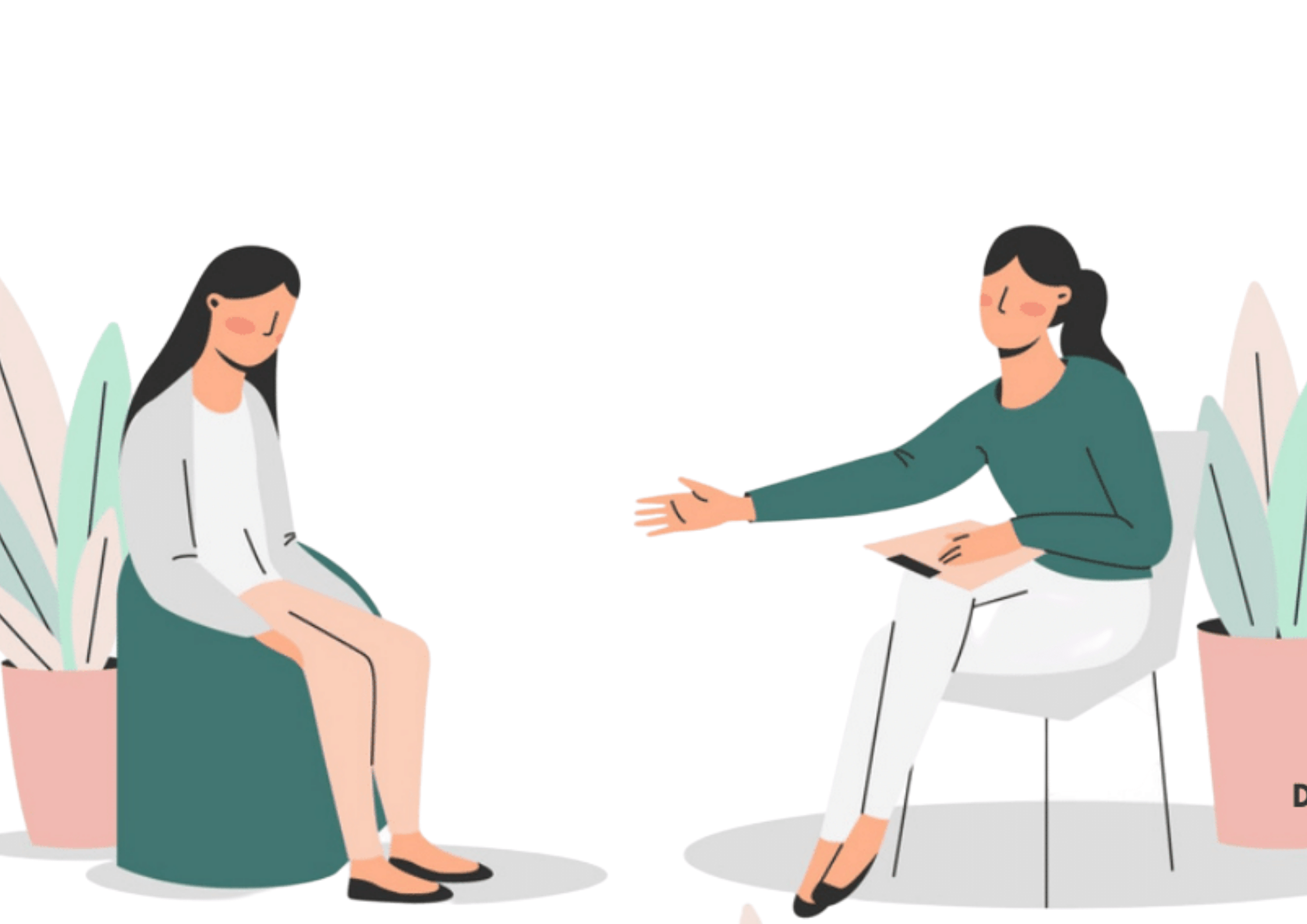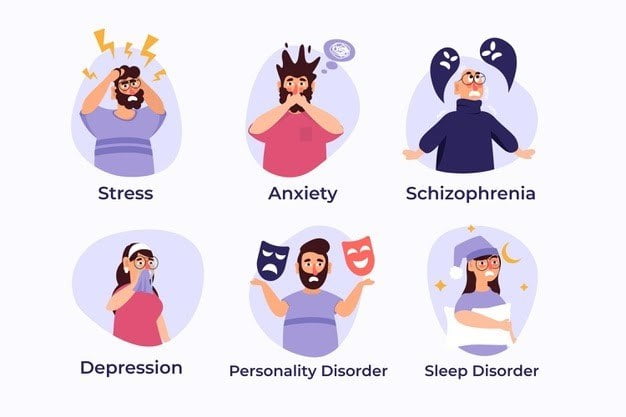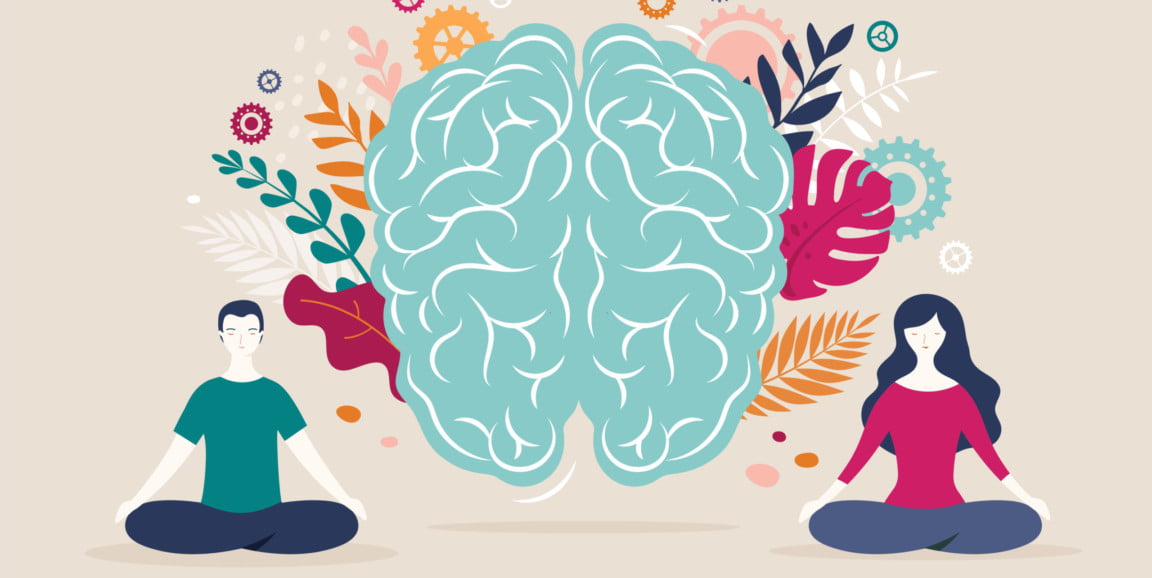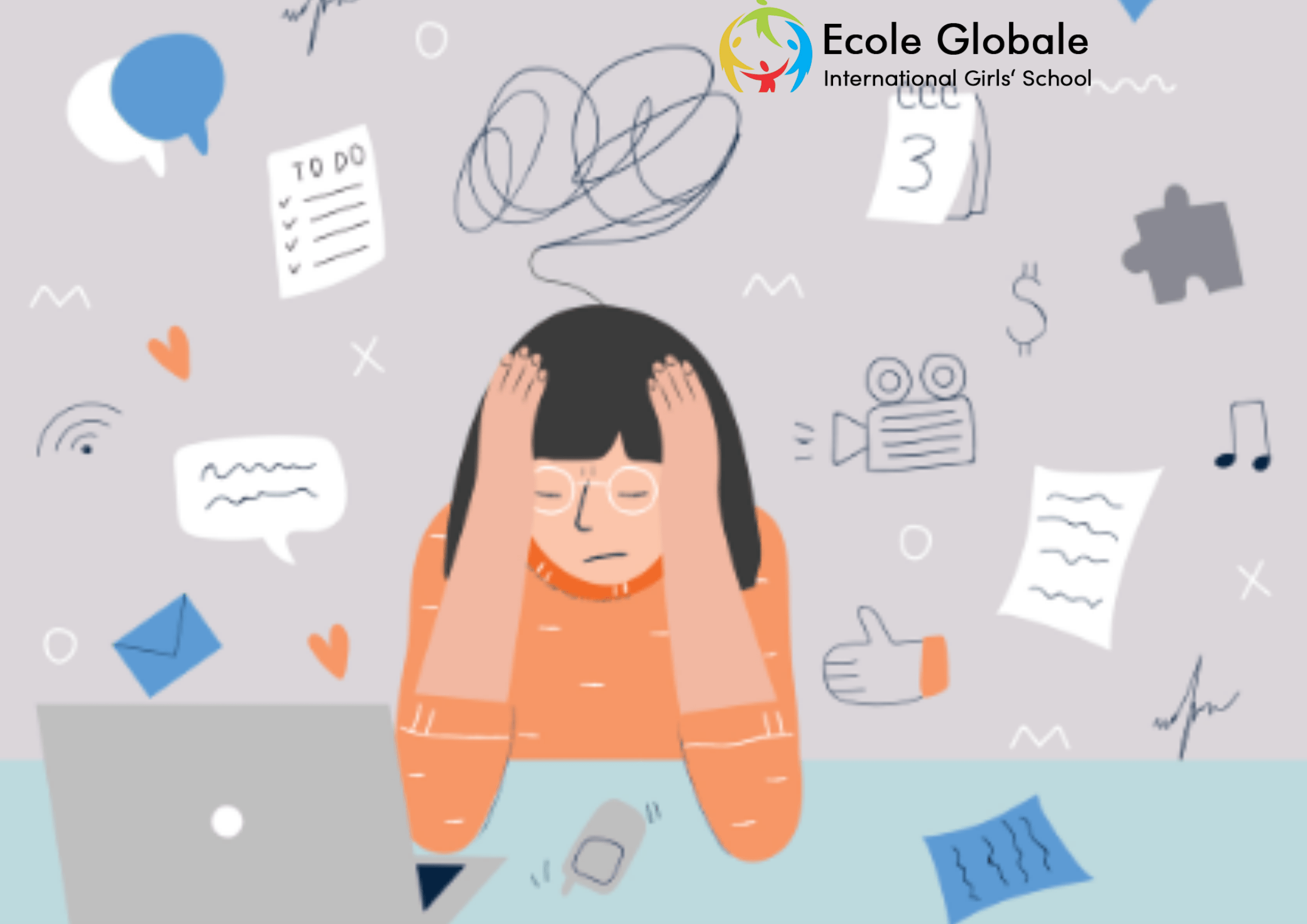Psychological Disorders are mental illnesses that affect the way you think, feel, and behave. They’re more than just a case of the blues—they can be debilitating, and they’re not something to be ashamed of.
A psychological disorder is defined by an ongoing pattern of behavior that causes distress and affects your life in a significant way. It’s not something you choose or can control, and it’s not about being lazy or weak-willed. It’s just what happens when the brain gets out of whack for some reason.
Psychological Disorders are treatable with therapy, medication, or other non-invasive treatments like exercise or mindfulness practice. If you have any questions about whether you have a psychological disorder or how to get help for yourself or someone else.
Also Read: Psychological Impacts Of The Peer Pressure And Exam Stress
Common Psychological Disorders

Psychologists have identified several different types of psychological disorders. Some are more common than others. Here are some of the more common types:
Anxiety disorders: Anxiety disorders include panic disorder, social phobia, generalized anxiety disorder (GAD), and post-traumatic stress disorder (PTSD). People with these conditions experience overwhelming feelings of fear and dread that can interfere with everyday life.
Obsessive-compulsive disorder (OCD): People with OCD worry about being contaminated or infected by germs. They may wash their hands over and over again, or check light switches or appliances repeatedly to make sure they’re off. They may also have obsessive thoughts about certain things they do not want to think about but feel compelled to think about anyway — for example, checking to ensure the stove is turned off before leaving the house or counting items in a store before paying for them.
Depression: Depression is a serious illness that affects how you feel both mentally and physically. People who are depressed may feel sad, hopeless, worthless, and irritable most of the time; lose interest in activities they once enjoyed; have trouble sleeping; eat more or less than usual, and have difficulty concentrating on what’s happening around them. Depression can lead to suicide attempts.
Causes of Psychological Disorder

The causes of psychological diseases are frequently multifactorial and involve intricate interactions between genetic and environmental factors. Numerous risk factors have been linked to the emergence of psychological illnesses, but their proportional contributions to mental disease vary depending on the ailment and the patient, making it difficult to pinpoint a specific cause in each case.
1. Biological factors, such as genetics or brain chemistry
Genetics plays a role in the development of psychological disorders, as do brain chemistry and structure. However, these factors alone cannot cause a psychological disorder—they only increase the likelihood that someone will develop one.
In addition to biological factors, behavioral and social factors can also lead to the development of a psychological disorder. For example, if you were abused as a child or grew up in an abusive environment where you were constantly subjected to bullying and intimidation.
2. Life experiences, such as trauma or abuse
Life experiences, such as trauma or abuse, can cause psychological disorders. Psychologists have found that stress and trauma can lead to mental health issues such as depression and anxiety.
This is because our brain uses the same system for both memory and emotions. When we experience a traumatic event, our brain creates a memory of that event—but the same process also creates strong emotions related to the event, like fear or anger.
3. Family history of mental health problems
Family history of mental health problems is one of the most common causes of psychological disorders.
When a child grows up in an environment where one or both parents suffer from depression, anxiety, or other disorders, they are more likely to develop similar conditions themselves. This is because their parents’ illnesses can cause them to feel stressed and anxious about their well-being.
Impacts of Psychological Disorders

Psychological disorders are very serious and can be life-threatening. They also hurt the individual who has them, their family and friends, and society as a whole.
1. Affect the way people interact with others
Psychological disorders can have a profound impact on the way people interact with others. For example, if you have schizophrenia, you will likely struggle to interact with others healthily. You may also find yourself unable to empathize or sympathize with others. The same is true for people who have depression and anxiety disorders: they may have trouble connecting with others because they don’t feel like they deserve to be loved or cared for by anyone else.
It’s important to remember that these are just some of the ways that psychological disorders can impact your social life—there are many more!
2. Sometimes, psychological disorders mean admitting there is a problem
Sometimes, psychological disorders mean admitting there is a problem. And that’s not always easy to do. It can be embarrassing, or it can feel like a failure. But the truth is that if you’ve been struggling with an issue for a while—be it depression or anxiety or just not feeling like yourself—it’s okay to reach out for help.
You deserve to be healthy and happy and stable. You deserve to feel good about yourself and your life. And if you’re having trouble getting there, then it’s time to ask for help. The first step is admitting that something is wrong, which can be scary but also liberating at the same time.
3. Mental illness can cause isolation
Mental illness can cause isolation, which in turn can cause more mental illness. For example, if an individual with a mental illness is isolated from their friends and family, they may feel more alone or depressed. This can result in further isolation, which may lead to more depression, anxiety, or other mental illnesses.
When an individual with a mental illness is isolated from others, they are less likely to receive the emotional support they need to cope with their problems and get better. In addition, it is more likely that they will miss out on opportunities for treatment and recovery because they are not able to get help from others who are close by.
Conclusion

If you’re reading this today and you know that you have a problem of some kind, there are people out there who want to help. Communicate openly with those around you, talk to a counselor or therapist, and get involved with your local community. As stated previously, no one is an island—we all need support from others at some point or another. By taking steps forward in the right direction today, though, you will be well on your way to ending your struggle before it ruins any more of your life.
For any queries related to parenting, schooling, or any student-related tips, click here to check out our latest blogs.









